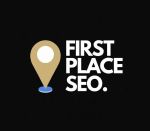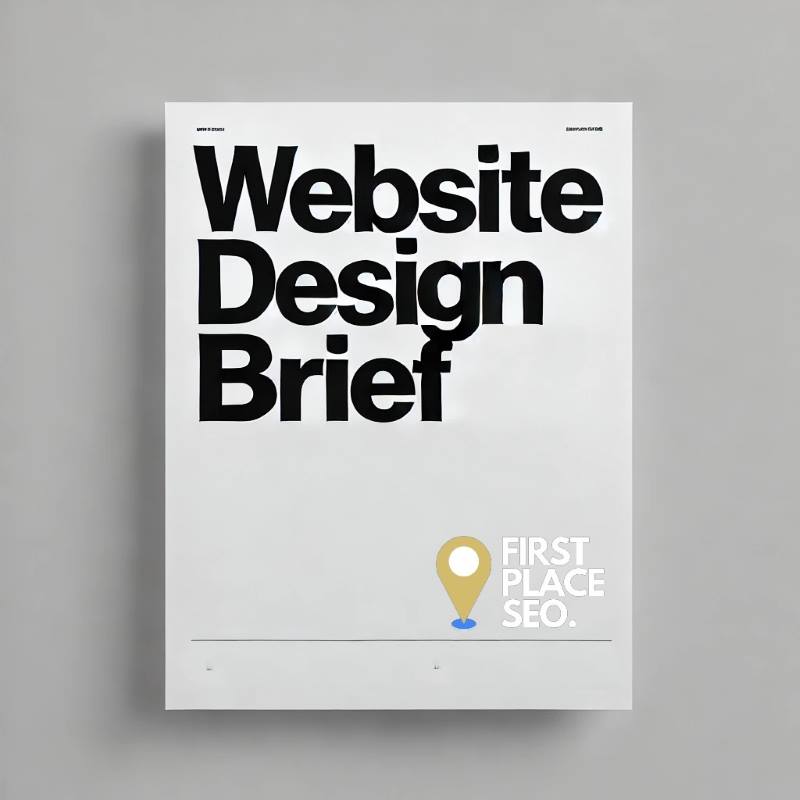How to Create a Website Design Brief That Works
Planning a new website should be exciting, but getting your ideas across clearly can be a challenge. We’ve all been there—trying to articulate exactly how you want your site to look and function can feel overwhelming. That’s why we’ve put together this short, practical guide to help you create a website design brief that speaks your vision, saves time, and makes the whole process smoother.
Why You Need a Website Design Brief
A website design brief is the backbone of your project. By outlining your needs and expectations, you’ll ensure that everyone involved is on the same page. This way, your web agency can deliver exactly what you’re after, without unnecessary delays or revisions. A well-prepared brief also helps in getting an accurate quote and timeline, so there are no surprises down the road.
There’s no need to go overboard with details, though. The goal is to cover what’s essential to get the project moving in the right direction.
Let’s Talk About Your Business
Before going into the finer details of your website, it’s important for us to understand who you are and what you do. This helps us tailor the design to fit your brand and audience. Here’s what we need to know:
- Business Name and Website: Start with the basics—your company name and your current website, if you have one.
- What You Offer: Give us a snapshot of your business. What products or services do you provide? What makes you stand out in your field?
- How Long You’ve Been Operating: Whether you’re a startup or have been around for years, this info gives us context about your business.
- Location: Knowing where you’re based helps us understand your market and can influence design choices.
- Business Scale: Sharing details like your company’s size or annual turnover helps us gauge the project’s scope.
This background sets the stage for everything that follows, ensuring the design reflects who you are.
What Are Your Website Goals?
Every website should have clear goals. Understanding what you want to achieve will guide the entire project. So if you have chosen the best agency for web design in Vancouver or the top web designer in London you will need to consider these points and articulate it to them in one way shape or form:
- Increase in Conversions: Are you looking to boost sales or leads? Be specific—how much growth are you aiming for, and by when?
- Business Expansion: Are there new markets or products you plan to introduce? Let us know so we can design a site that supports these ambitions.
- Improving User Experience: If your current site isn’t delivering a seamless experience, tell us what’s lacking. We’re here to make your site user-friendly and engaging.
Clear objectives help us design a site that not only looks good but also meets your business needs.
Your Brand and Visual Style
Your website should reflect your brand’s identity, whether you’re sticking with an existing style or starting fresh. Here’s what we need to know:
- Existing Branding: If you’ve already got a logo and brand guidelines, share them with us. Consistency is key.
- Brand Update or New Design?: Are you happy with your current look, or are you thinking of a rebrand? Either way, we’ll make sure your site aligns with your vision.
- Design Preferences: Whether you lean towards bold, vibrant designs or something more minimalist, your preferences guide our creative process.
This information helps us create a site that’s visually cohesive and true to your brand.
Understanding Your Audience
Your website needs to resonate with your target audience. The more we know about them, the better we can design a site that speaks their language:
- Who Are They?: Tell us about your typical customers—age, gender, location, and profession all help paint a picture.
- What Motivates Them?: What are their interests, needs, and challenges? Understanding this helps us create a user experience that connects with them.
- How They Use the Web: Are they browsing on their phones or desktops? This info is required for designing a site that feels right, no matter the device.
Knowing your audience allows us to tailor the design and functionality to their preferences.
Reviewing Your Current Website
If you already have a website, it’s useful to take stock of what’s working and what isn’t. Here’s what to include in your brief:
- Current Website: Share your existing site’s URL, no matter its condition. It’s all part of the process!
- What You Like: Are there aspects of your current site you’re fond of? Let us know so we can incorporate those elements.
- What Needs Improvement: Be honest about what’s not working. Whether it’s design, functionality, or content, we want to know where we can make things better.
Understanding your current site’s strengths and weaknesses helps us build on what’s good and fix what’s not.
Benchmarking Against Competitors
Looking at what others in your industry are doing can be incredibly useful. Here’s what to think about:
- Competitor Websites: Share the URLs of websites you admire—whether they’re direct competitors or just sites that catch your eye.
- Features You Like: Maybe it’s the layout, the design, or specific functionalities that you appreciate. Tell us what stands out.
- What to Avoid: If there are elements you dislike, let us know. We’ll make sure to steer clear of them.
This exercise gives us a clearer idea of your preferences and expectations, helping us design a site you’ll be proud of.
Planning Your Content
Content is the heart of your website. Whether you’ve got it ready or need help creating it, we need to know your plans:
- Existing Content: Do you have text, images, or videos ready? If not, we can step in to help create what you need.
- Number of Pages: Estimate how many pages your site will need. Will you have a simple brochure site or a more complex setup with multiple sections?
- Content Layout: How do you want your content organised? Whether it’s long-form articles or short snippets, we’ll design a layout that suits your needs.
By planning your content early, we ensure that your website not only looks great but also communicates effectively.
Defining Technical Requirements
Every website has specific technical needs. The clearer you are about these, the better we can meet them. Here’s what to consider:
- Essential Features: Do you need a blog, an online store, or social media feeds? Let us know what’s a must-have for your site.
- Special Requirements: If you require advanced features like a booking system, custom forms, or API integrations, be sure to include those details.
Knowing your technical requirements upfront helps us build a site that functions smoothly and meets your exact needs.
Thinking About the Future
Your website should be built with the future in mind. Here’s how you can help us plan for what’s next:
- Future Features: Even if you’re not ready for them now, tell us about any features you might want to add down the line. We can design with flexibility in mind.
- Content Updates: If you plan to update your site regularly, let us know. We’ll make sure it’s easy for you to manage your content.
- Potential for Ecommerce: If selling online is in your future, we can prepare your site to handle ecommerce when you’re ready.
Planning for the future ensures your website remains relevant and functional as your business grows.
Discussing Your Budget
Talking about money might not be the most exciting part, but it’s needed for setting expectations. Here’s what we need to know:
- Your Budget: Give us a rough idea of what you’re willing to invest. This helps us propose solutions that fit within your financial limits.
- Where to Focus Spending: If certain aspects of the project are more important than others, let us know. We can prioritise accordingly.
Being clear about your budget allows us to deliver the best possible site without stretching your resources.
Setting Your Project Timeline
Deadlines matter, and we want to make sure we’re aligned on timing. Here’s what to consider:
- Desired Launch Date: Do you have a specific date in mind for your site to go live? Whether it’s for a product launch, an event, or just a general timeline, let us know.
- Flexibility: If your timeline is more flexible, we can plan the project accordingly, ensuring everything is done right without rushing.
- Milestones: If your project has different phases, setting milestones helps keep everything on track.
Clear timelines help us manage the project efficiently, ensuring we deliver on time.
SEO and Performance Considerations
If search engine optimisation (SEO) is a priority for you, it should be integrated from the start. Here’s what to include in your brief:
- SEO Goals: Are you aiming to improve your rankings or increase organic traffic? Let us know so we can factor this into the design and content.
- Current Analytics: If you have any data from your existing site, sharing it can help us identify areas for improvement.
- SEO Integration: Tell us whether you need SEO built into your site from day one or if it’s something you’ll manage separately.
Thinking about SEO from the outset ensures your site is set up to attract and retain visitors effectively.
Hosting and Maintenance
Finally, let’s talk about where your site will live and how it will be maintained. Here’s what we need to know:
- Hosting Preferences: Will you be using our hosting services, or do you have another provider in mind? If it’s the latter, make sure to provide the necessary details.
- Technical Specifications: Ensure your hosting meets the technical requirements needed for your site, like PHP versions and available storage.
- Ongoing Maintenance: If you need help with site maintenance after launch, let us know. We’re happy to offer support.
Choosing the right hosting and maintenance setup is essential for keeping your site running smoothly and securely. If in doubt then your web designer can point you in the right director or even host it for you.


